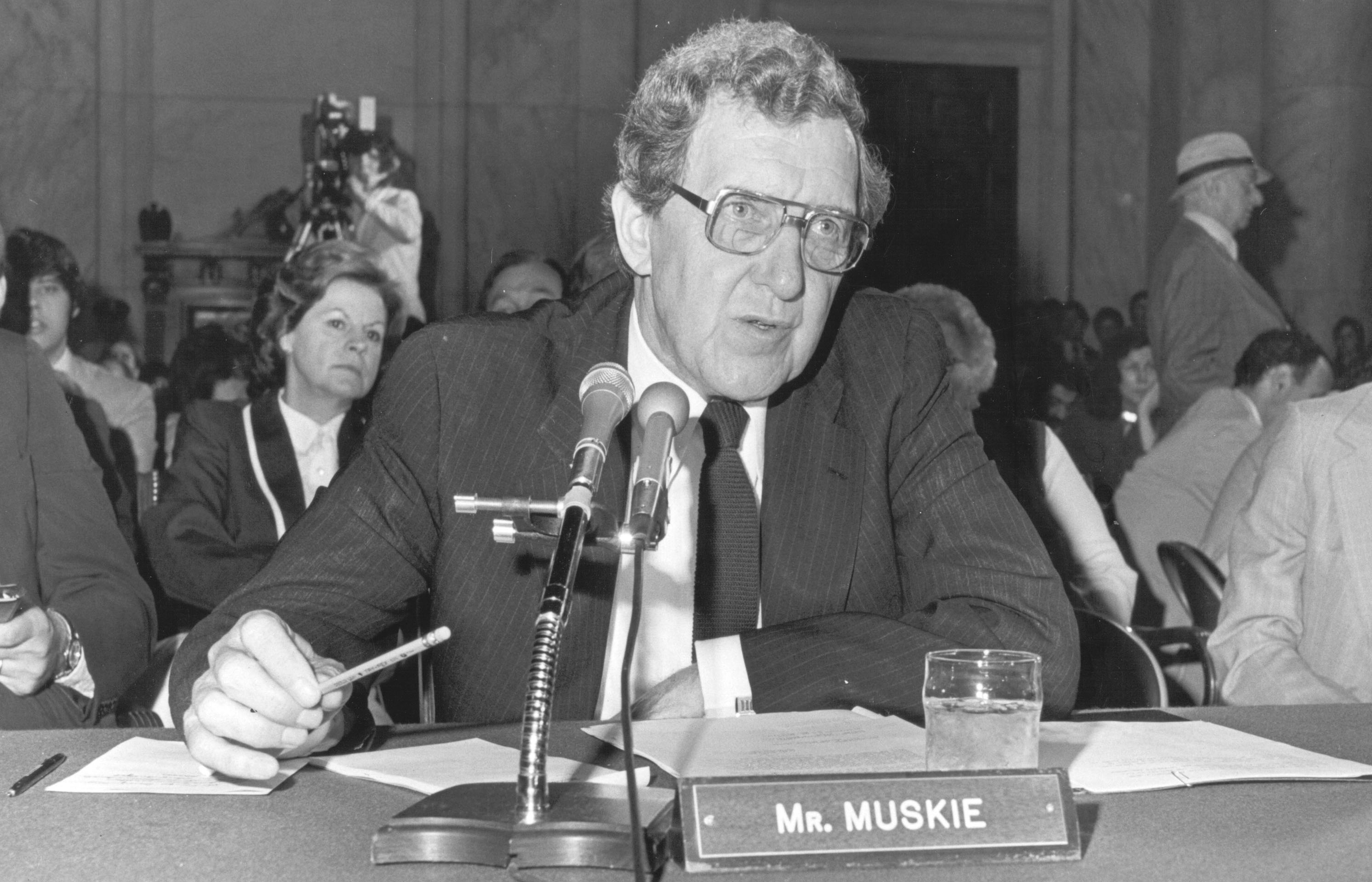
Edmund S. Muskie Oral History Collection
Document Type
Oral History
Loading...
Publication Date
9-17-2002
Interview Number
MOH 365
Abstract
Berl Bernhard was born in New York, New York on September 7, 1929 to Morris and Celia (Nadele) Bernhard. Berl lived in New Jersey, then attended Dartmouth College, graduating in 1951 and Yale Law School, graduating in 1954. His law career began in Washington as a law clerk to Luther Youngdahl. In the late 1950s he took a position on the Civil Rights Commission, and was appointed staff director by John Kennedy in 1961. In 1963 he returned to private practice, and became counsel to the Democratic Senate Campaign Committee in 1965. He became involved with Senator Muskie's 1968 vice presidential campaign as a result of his DSCC work, and then went on to work for Senator Muskie's 1972 presidential campaign as national campaign manager accompanying the Senator on his trips to Israel and the Soviet Union. From 1980 to 1981 he served as senior advisor to Ed Muskie when he became Secretary of State.
Use Restrictions
Copyright Bates College. This transcript is provided for individual Research Purposes Only; for all other uses, including publication, reproduction and quotation beyond fair use, permission must be obtained in writing from: The Edmund S. Muskie Archives and Special Collections Library, Bates College, 70 Campus Avenue, Lewiston, Maine 04240-6018.
Recommended Citation
Nicoll, Don, "Bernhard, Berl oral history interview" (2002). Edmund S. Muskie Oral History Collection. 29.
https://scarab.bates.edu/muskie_oh/29
Transcript


Scope and Content Note
Interview includes discussions of: trip to Israel continued; visiting Menachim Begin without clearance; Begin's stance on foreign relations; Begin's attitudes toward Golda Meir; Begin's responsibility for the Kind David Hotel; Muskie's reaction to the secret meeting; Golda Meir's reaction to the meeting; Ben-Gurion meeting; Muskie's meeting with Knesset members; Yitzhak Rabin's painting Ed Muskie as an "Unfeeling Polish Catholic"; Muskie's reaction to this criticism; South Florida Synagogue meeting; "Remember the Warsaw Ghetto" banner at the Florida synagogue; Moscow trip; Russian KGB surveillance in Moscow; meeting with Aleksei Kosygin; meeting with Andrei Gromyko; Germany trip; setting up a finance committee in 1971; secret Republican financing for Muskie's campaign; John Clifford Folger financing the Israel trip; John Snyder fundraising for Muskie; problems disclosing the source of Snyder's money during the Watergate investigation; Snyder turning over names of dead people; Muskie's lack of fundraising ability; lack of clear strategy for winning the 1972 primary; 1970 Nixon-Muskie back to back; inability to handle widespread support; Muskie's stance on Vietnam; strategy of seeking endorsements; inability to generate "ground support"; inability to mobilize labor; and failure in the primaries.